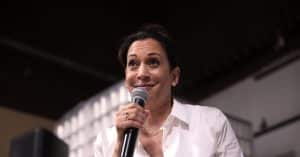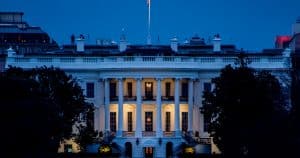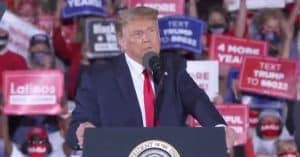Justice Amy Coney Barrett' explains rationale for backing an ethics code
U.S. Supreme Court Justice Clarence Thomas has been the target of inflated claims of ethical blindness, and conservatives have spent much of the past few months defending him.
This past week, conservative Justice Amy Coney Barrett acknowledged the need for such an ethics code, as the Washington Examiner reported.
If the Supreme Court, rather than Congress, wrote the code to avoid constitutional considerations of the separation of powers, then she would be correct.
Barrett's Comments
Barrett made her remarks at a University of Minnesota Law School event attended by over 2,500 citizens.
The justice said, "I think it would be a good idea for us to do it, particularly so that we can communicate to the public exactly what it is that we are doing in a clearer way than perhaps we have been able to do so far."
Democratic lawmakers have been pushing to have Thomas removed from the court and have threatened to pass legislation mandating a code of ethics for justices after hearing exaggerated reports that he and fellow conservative Justice Samuel Alito accepted lavish hospitality from wealthy businessmen.
However, many conservative legal advocates say that Congress lacks authority to directly regulate the actions of the court and that ethics regulations are difficult to apply to a wide variety of prospective situations, which "exposes federal judges to all sorts of abusive complaints."
The arguments made by the supporters are compelling. However, the lack of a formal code is precisely what has led to situations in which justices were unsure of what sorts of things should be publicly reported and what allowed liberal critics and the media to describe things as unethical mountains that were, in reality, smallish foothills.
The Accusations
The types of claims that Thomas and Alito's conservative defenders have made — and that the lack of a code hasn't prevented — are clearly considered "abusive complaints."
If the code was more explicit, judges could argue that they are protected by it when they accept hospitality from friends who have nothing to do with the court or when they give talks to organizations of their peers. In other words, a code may serve as a defense against erroneous attacks rather than an obstacle.
Barrett did not provide a timeline since it is difficult to write the "right kind of code" with the "right level of specificity." But she and Chief Justice John Roberts before her both suggested that the court are giving the possibility of a code or stricter parameters significant consideration.
From the data at hand, it appears that that none of the nine judges are actually corrupt, but they may just be ignorant to the obvious. However, the justices themselves would benefit from knowing where their own limits are. Every responsible parent knows the paradoxical truth that regulations that are both explicit and not overly burdensome may actually be rather liberating.




